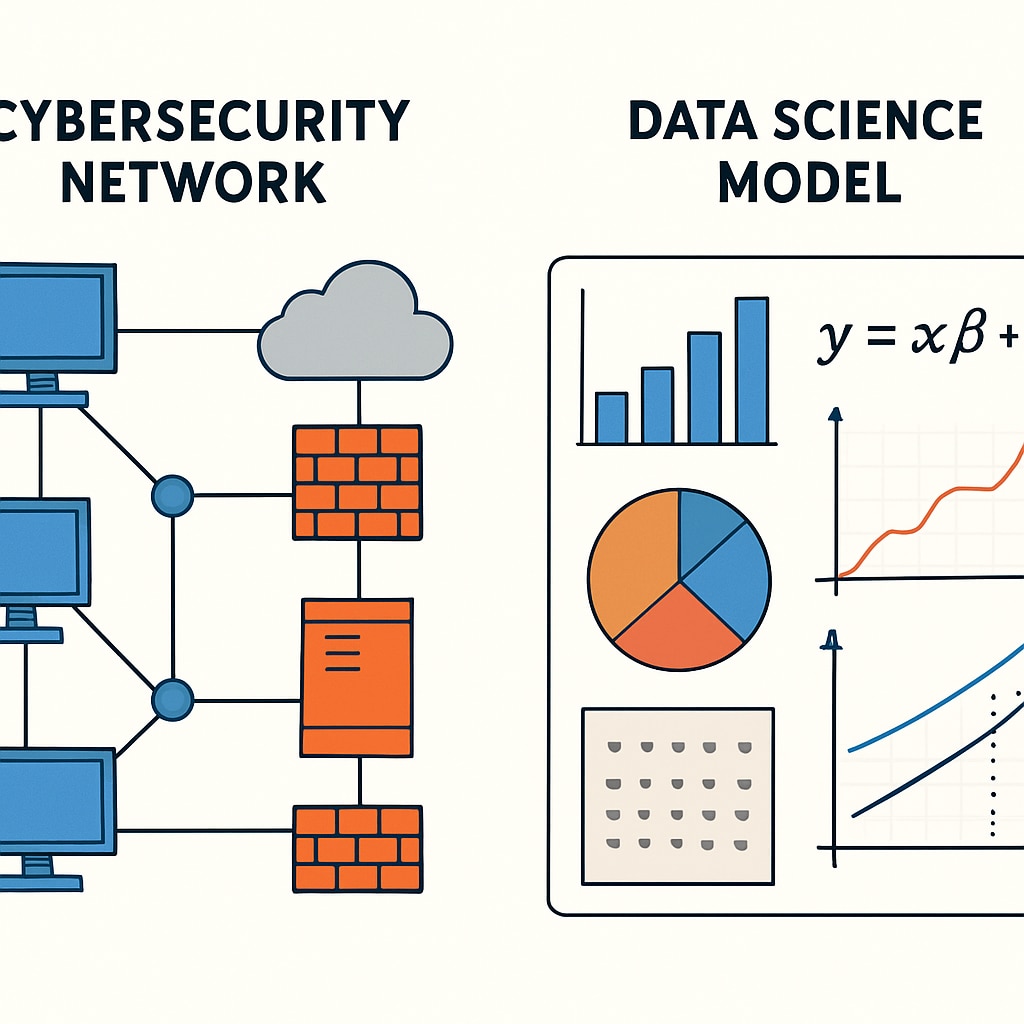In today’s digital-first world, “cybersecurity, data science, career choice” are among the most critical decisions K12 students face when mapping their future. Both fields are dynamic, innovative, and increasingly in demand. But how do these two career paths differ, and what should students consider before choosing one? This article examines the learning paths, job prospects, and lifestyle implications of cybersecurity and data science, providing a roadmap for students at the start of their professional journeys.
Understanding Cybersecurity and Data Science
Before diving deeper, it’s essential to define these two fields. Cybersecurity involves protecting systems, networks, and data from digital threats such as hacking, malware, and data breaches. Its primary focus is defense and risk management. On the other hand, data science revolves around analyzing and interpreting large datasets to derive insights, solve problems, and guide decision-making. It combines statistics, computer science, and domain knowledge.

Learning Pathways: Bridging Skills and Knowledge
Both cybersecurity and data science require a strong foundation in mathematics, programming, and analytical thinking, but their learning trajectories differ significantly.
- Cybersecurity: Students interested in cybersecurity typically start with foundational courses in computer science, networking, and ethical hacking. Certifications like CompTIA Security+ and Certified Information Systems Security Professional (CISSP) are highly valued in this field. Hands-on experience through internships or simulated attack-response scenarios plays a critical role.
- Data Science: For data science enthusiasts, the journey often begins with statistics, Python programming, and machine learning. Tools like R, TensorFlow, or SQL are commonly used, and platforms like Kaggle provide opportunities to practice real-world data challenges. Advanced studies may include natural language processing and deep learning.
While both paths demand technical expertise, cybersecurity leans more toward system protection and ethical considerations, whereas data science emphasizes modeling, algorithms, and predictive analysis.
Career Prospects: Opportunities and Growth
The job market for both fields is booming, but the types of roles and industries differ. Here’s a comparison:
- Cybersecurity Careers: Roles like cybersecurity analyst, penetration tester, or information security manager are in high demand. Industries such as finance, healthcare, and government prioritize cybersecurity to safeguard sensitive data.
- Data Science Careers: Data scientists, analysts, and machine learning engineers find opportunities in tech companies, e-commerce, and research organizations. The ability to interpret data is highly sought after in marketing, product development, and even sports analytics.
According to the U.S. Bureau of Labor Statistics, the job outlook for these professions is expected to grow by over 30% in the next decade, reflecting the increasing reliance on digital solutions and data-driven decision-making.

Lifestyle and Work Environment
Another key consideration for students is understanding how each career path aligns with their desired lifestyle. Cybersecurity professionals often work in high-pressure environments, responding to threats in real time. This can lead to irregular hours, especially during critical incidents. However, the field also offers remote work options and the satisfaction of safeguarding digital assets.
In contrast, data science roles are typically more project-based, with a focus on research and experimentation. Work environments are often collaborative, with teams analyzing data together to develop solutions. While deadlines can be demanding, the pace is generally less urgent compared to cybersecurity.
Making the Right Choice
Choosing between cybersecurity and data science ultimately depends on a student’s interests, strengths, and career ambitions. Here are some questions to guide the decision:
- Do you enjoy problem-solving under pressure and have a passion for defending digital systems? Cybersecurity might be your path.
- Are you fascinated by data, trends, and predictive analysis? Data science could be the ideal choice.
- Do you prefer a hands-on, action-oriented career, or are you drawn to research and modeling?
By exploring internships, online courses, and mentorship opportunities, students can gain a clearer understanding of both fields and make informed decisions.
In conclusion, “cybersecurity, data science, career choice” are not just buzzwords but critical considerations for shaping the future. Both fields offer exciting prospects and the chance to make a meaningful impact in the digital age. With the right preparation and mindset, students can confidently embark on their chosen pathways.


